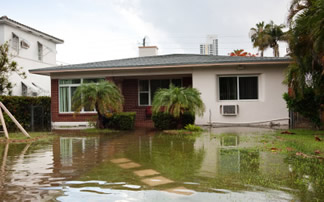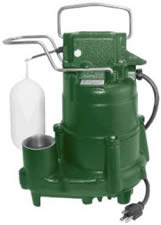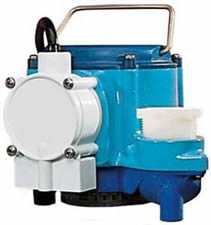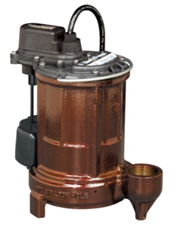Leaky Basement? Learn How a Sump Pump Can End the Nightmare
Nothing can be more frustrating than a leaky basement, and if you have decided to just turn your back on the problem, you can be sure that it will be waiting for you in full force when you decide to revisit it. Water problems in the basement can not only cause you to lose the joy of using your basement as needed living space, but can easily cause a whole host of problems from mold to structural damage. A sump pump is a simple solution to help you end the nightmare of a leaky basement, and the best thing about sump pumps is that they perform well for a very minimal price.
What is a Sump Pump?
During a storm or heavy rain, a sump pump is a pump that keeps your basement and the area beneath the basement from flooding. A sump is a small pit under your basement that is constructed to fill with water when the ground water level is elevated, keeping the water from getting into the basement and damaging your home's structure. A sump pump moves that water away from you home where it can drain properly without any damage to your home.
Sump pumps can be either submersible or pedestal types. The submersible sump pump has a waterproof motor that allows the pump to fit inside the sump pit. The pedestal sump pump is often called an upright sump pump, has a pump that goes into the sump pit with a motor that is elevated above it. Either type of sump pump will connect to an outlet pipe that carries any water that would ordinarily leak into your basement away from your home (recommended twenty feet). Sump pumps vary in motor strength (horse power) and have different sizes of pipes as outlets. And while most sump pumps operate using electricity, there are some that are backed up by batteries in the event of a power outage. A floater in the sump pit triggers the sump pump to come on when needed.
Do You Need A Sump Pump?
You may be surprised to learn that many water problems in your basement are not problematic of the basement, but are caused by your exterior drainage system. Clogged gutters, downspout extensions that aren't installed far enough away from your home's foundation (at least four feet), and soil around the home that doesn't slope away from the foundation can all be the root causes of water ending up where you don't want it - in your basement. Before buying a sump pump, you should rule out that you don't have an exterior drainage problem by taking a good look at how the drainage systems around your home are functioning; an optimal time to do so is when it is raining fairly steadily. Lots of basement problems can be fixed by fixing drainage problems outside.
If you don't have any of the above problems with the exterior drainage of your home, then you may have a utility trench that is channeling water runoff back to your home, or possibly be located near a ground water table that is seasonally high. A sump pump will work well in these two instances, or for other causes of water problems in the basement. While many of the newer homes out there may have a sump pump pit in the basement which includes a system under the basement's flooring that will channel water to the pit, you may want to install one. This can be a complicated and costly procedure, especially if you contract the work out and don't have the time or skills to do it yourself. Most homeowners elect to install a cheaper alternative, which is the isolated sump pit which is a couple of thousand dollars cheaper. This type of system is more beneficial if there is only one specific area in the basement that has a water problem.
|
|






